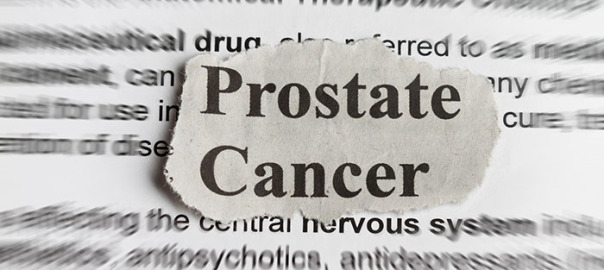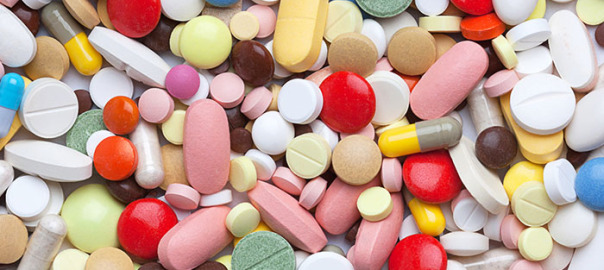From The TBN Staff: The intent of this article is to help the members of the forum to become more aware of issues we may face as we age and to highlight Prostate Cancer and Iodine. We don’t pretend to be medical experts yet many of us have faced this nasty adversary and overcome. Yet, others, not so fortunate. Please take a minute to review this article and perhaps comment or better yet share your information or direct us to research another avenue overcome this foe.
Updated by: Andrew Weil, M.D., and Brian Becker, M.D., on January 10, 2013
Prostate Cancer and Iodine
Normal cells tightly control apoptosis (the death of cells that occurs as a normal and controlled part of an organism’s growth or development) in order to maintain homeostasis (the tendency toward a relatively stable equilibrium between interdependent elements, esp. as maintained by physiological processes).
Cancer cells that avoid apoptosis continue to proliferate uncontrollably, which results in an increased tumor mass. Resisting apoptosis is a key process in cancer development and progression.
Iodine appears to work for prostate cancer as prostate cancer is similar to breast cancer in many ways. Indeed, it likely will help with most cancers. Also higher doses of iodine are required for inflammatory breast cancer.
Iodine lack is known to be a factor in the development of breast and prostate cancer. Sixty patients with a variety of cancers were studied. All sixty patients were found to have serious iodine deficiency.
Another physician has seen a case of prostate cancer go into remission after taking Iodoral and supplements.
As well we know that large doses of intravenous iodine are harmless which makes one wonder what effect this would have on cancer growth.”
According to Dr Guy Abraham Iodine is detected in every organ and tissue in the body. And so essential is it for life that a deficiency in it will bring a wide variety of afflictions (including cancer) that are difficult to trace back to the trace mineral,iodine. It used to be routinely added to bread as a supplement up until 20 years ago.
What is iodine?
Iodine is a non-metallic mineral which humans require in trace amounts for proper development and growth. It exists in most soils, and is taken up by plants which are in turn ingested by humans and animals. Most of the body’s stores of iodine are located in the thyroid gland, which requires iodine for the synthesis of thyroid hormones.
Why is iodine necessary?
Iodine is used by the thyroid gland to produce hormones which regulate all key metabolic functions including blood cell production and nerve and muscle function. Because our body heat is primarily derived from muscle metabolism, these hormones also regulate body temperature. Topically applied iodine is also useful to help prevent wounds from becoming infected, and iodine tablets dissolved in water provide an inexpensive way to purify water in emergency situations.
What are the signs of a deficiency?
Signs of iodine deficiency include an enlarged thyroid gland (goiter), and weight gain, as well as symptoms of hypothyroidism such as fatigue and intolerance of cold. Chronic iodine deficiency can lead to health problems such as thyroid gland dysfunction, and neurologic, gastrointestinal, and skin abnormalities. Iodine deficiency in pregnant or nursing mothers can result in deficiency during fetal and child development, and is the most common cause of preventable brain damage in the world.
How much, and what kind, does an adult need?
According to the National Institutes of Health (NIH), adults 18 and older should get 150 mcg daily; pregnant women 18 and older, 220 mcg; and lactating women, 290 mcg.
How much does a child need?
The NIH recommends a daily intake of:
• infants 0-12 months, 50 mcg
• children 1-8 years, 90 mcg
• children /young teens 9-13,120 mcg
• teens 14-18, 150 mcg.
How do you get enough iodine from foods?
Good dietary sources of iodine include iodized salt; dairy products (animals secrete dietary iodine into milk and animal feed contains iodine); and seafood including fish, shellfish, seaweed, kelp, sardines and canned tuna. Plants grown on iodine-rich soil are also good sources. If you are eating a healthy, balanced, varied diet, you’re probably getting enough iodine and don’t need to use iodized salt.
Are there any risks associated with too much iodine?
Signs and symptoms of acute iodine poisoning include burning of the mouth, throat, and stomach; fever; nausea; vomiting; diarrhea; a weak pulse; and coma. Excessive iodine intake can be toxic to those with kidney disease or tuberculosis, and may increase the risk of thyroid papillary cancer. There is an unhealthy practice of using iodine tablets to “boost” thyroid function, and toxicity can result. You should never take iodine tablets without a physician’s recommendation to do so.
References:
http://www.lef.org/magazine/mag2011/oct2011_The-Silent-Epidemic-of-Iodine-Deficiency_01.htm
http://www.theiodineproject.webs.com/cancerandiodine.htm
http://www.ncbi.nlm.nih.gov/pubmed/23321072
http://tuberose.com/Iodine.html
Iodoral® is a Tablet form of Lugol solution and is available in 2 strengths: 12.5mg/Tablet and 50mg/Tablet, each strength is available in 2 sizes: 90 Tablets and 180 Tablets of 12.5mg: and 30 Tablets and 90 Tablets of 50mg
One 12.5 mg. tablet of Iodoral supplies an amount of total elemental iodine, comparable to the average daily intake of this essential element by mainland Japanese, a population with a very low prevalence of fibrocystic disease of the breast and breast cancer.
I. GENERAL INFORMATION
Iodine is an essential element. Although its main function is in the production of thyroid hormones by the thyroid gland, other organs in the body have a need for iodine in order to function normally.
Several studies have demonstrated a relationship between low iodine intake and fibrocystic disease of the breast (FDB), both in women and laboratory animals. The minimum amount of iodine required for control and prevention of FDB is equivalent to 0.1mg/kg body weight/day. For example, for a 50 kg woman, the daily amount of iodine would be 5 mg. The thyroid gland needs iodide to function properly. The original study done 80 years ago to control goiter in adolescent girls used 9 mg iodide daily.
During the early 1900’s, the iodine/iodide solution called Lugol solution was used extensively, effectively and safely in medical practice, for both low activity and above normal activity of the thyroid gland. The recommended daily intake for iodine supplementation was 2 to 6 drops of Lugol solution containing 12.5 to 37.5 mg total iodide. That amount was mentioned as lately as 1995 in a book on Pharmaceutical Sciences (5). Several investigators have shown convincing evidence connecting inadequate iodine intake and breast cancer. Japanese women living in Japan consumed a daily average of 13.8 mg total elemental iodine and they experience one of the lowest prevalence (risk) for breast, ovarian and uterine cancer. In the 1960’s, one slice of bread in the USA contained the full RDA of 0.15 mg iodine. The risk for breast cancer was then 1 in 20. Over the last 2 decades, iodine was replaced by bromine in the bread making process. Bromine blocks thyroid function and may interfere with the anticancer effect of iodine on the breast. Now, the risk for breast cancer is 1 in 8 and increasing 1% per year.
The RDA limits for vitamins and minerals were established after World War II. One of the last essential elements included in the RDA system was iodine, established in 1980 and confirmed in 1989 (8). The RDA for iodine was based on the amount of iodine/iodide needed to prevent goiter, extreme stupidity and hypothyroidism. The optimal requirement of the whole human body for iodine has never been studied. Therefore, the optimal amount of this element for physical and mental wellbeing is unknown. Based on demographic studies, the mainland Japanese consumed an average of 13.8 mg daily and they are one of the healthiest people on planet earth. Lugol solution is a time-tested preparation with a proven track record for over 150 years. Two drops contain 12.5 mg iodine/iodide, an amount very close to the 13.8 mg average intake of mainland Japanese.
II. RATIONALE FOR THIS
FORMULATION
Administration of iodine/iodide in liquid solution is not very accurate, may stain clothing, has an unpleasant taste and causes gastric irritation. Iodoral® is a precisely quantified tablet form containing 5 mg iodine and 7.5 mg iodide as the potassium salt. To prevent gastric irritation, the iodine/iodide preparation was absorbed unto a colloidal silica excipient; and to eliminate the unpleasant taste of iodine, the tablets were coated with a thin film of pharmaceutical glaze.
III. SUGGESTED USE
The suggested daily amount is 1-4 tablets/day as recommended by your physician. Work closely with your physician while on the Iodoral® program. Report to your physician any history of thyroid surgery and/or radiation, chronic lymphocytic thyroiditis (Hashimoto), and any previous problem with your thyroid. Before starting Iodoral®, your physician (He/She = He) will order blood tests for hematology, blood chemistry and thyroid functions. He will also perform an ultrasound of your thyroid to measure the size and appearance of your thyroid. Depending on the results of the thyroid function tests and ultrasound, he may order some blood tests for thyroid antibodies. If you are taking thyroid hormones, let your physician know about it. Be aware that Iodoral® enhances the response of your body to thyroid hormones.





